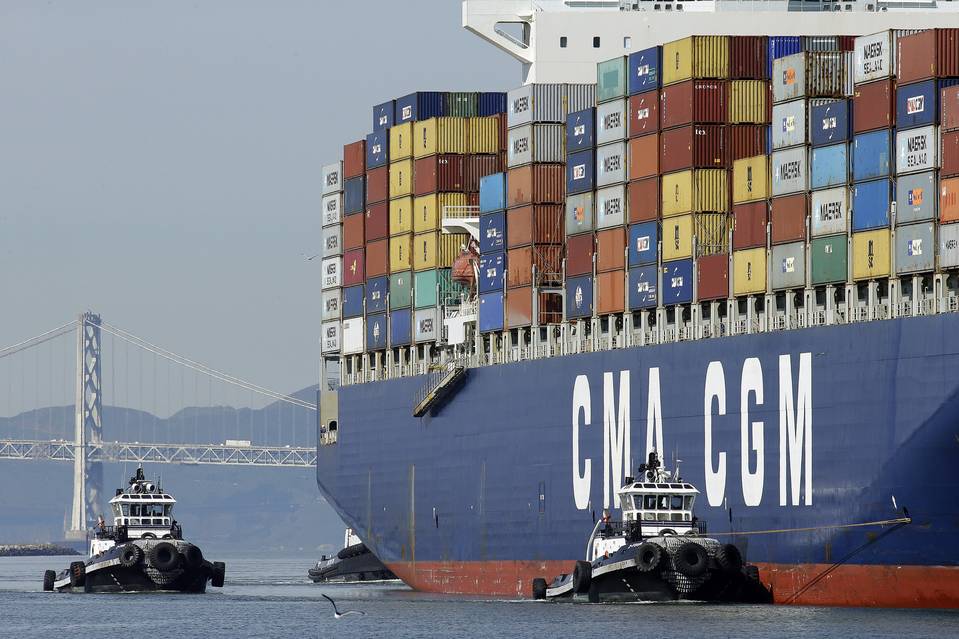- Raw Materials’ Imports Gulp N19.5tn in Seven Years
Although Nigeria and many of the African countries are admired for being commodity markets, a study of importation in the country shows that Nigeria has spent as much as N19.5tn on the importation of primary raw materials into the country in the past seven years.
Statistics obtained from the Raw Materials Research and Development Council showed that between 2010 and 2015, Nigeria spent N13.6tn on the importation of raw materials that could be replaced with other materials from local sources if some more rigorous work could be put into the country’s import substitution strategy.
By 2016, the country spent another N5.89tn on the importation of similar raw materials; thus, bringing the total sum spent on the importation of primary raw materials into the country within the seven-year period to N19.5tn. The imports in 2016 included some finished products.
This means that, on the average, the country splashed N2.79tn every year in the past seven years.
In broad categorisation, according to the RMRDC, the importation of cereals into the country constituted the highest source of capital flight in the importation of primary raw materials into the country.
For the first six years (2010 to 2015), cereals worth N2.49tn were imported into the country. This was followed by the importation of plastics, which gulped N1.88tn. Articles of iron and steel used as raw materials consumed N1.59tn.
Other categories of raw materials imports that hit the N1tn mark within the first six-year period were fish and crustacean, mollusc and other aquatic invertebrate, which gulped N1.28tn and rubber, which consumed N1.04tn.
Iron and steel raw materials consumed N949.38bn; sugar and sugar confectionery gulped N897.23bn; dairy consumed N692.37bn; while paper gulped N664.91bn.
Organic chemicals gulped N637.79bn; aluminium and articles of aluminium gulped N470.76bn; pharmaceutical products consumed N371.38bn; inorganic chemicals, N305.73bn; fertilisers, N237.13bn; and tomatoes, N102.69bn.
In 2016 alone, the importation of mineral fuels, oils, waxes and bituminous sub gulped N1.12tn; the importation of cereals gulped a total of N301.08bn; while the importation of fish and crustaceans gulped N206.43bn.
Other imports that consumed considerable amount of money were given as paper, paperboard and articles of paper wood, N129.74bn; miscellaneous chemical products, N124.08bn; plastics, rubber and articles of plastic, N236.47bn; dairy, eggs, and honey, N134.31bn; and animal or vegetable fats, oil and waxes, N62.54bn.
The Director-General, Raw Materials Research and Development Council, Dr. Hussaini Ibrahim, said the high level of imports of raw materials was not good for the economy, adding that government’s intervention was necessary to ensure domestic production of raw materials, which would reflect on declining levels of imports over time.
He said, “Efforts and resources could be properly channelled towards domestic production of the imported items by harnessing domestic potential for successful adoption of appropriate standards, conformity assessment and metrology parameters within the confines of business and societal concerns.
“Given dwindling oil revenue needed for national development, Nigeria’s ambition is to look inwards and commence domestic production of essential raw materials and products, especially in the areas where we have potential to source within the country.”
Similarly, the Minister of Science and Technology, Dr. Ogbonnaya Onu, said any economy not diversified and heavily dependent on the import of raw materials would find it difficult to confront the challenges of the growing shifts in global production and trade patterns.
According to the minister, Nigeria needs to begin to produce what it needs not only in the area of raw materials but also to fully prepare for a post-oil economy.
He said, “To enable us to achieve this, Nigeria should put in place measures that will enable her to emerge as a nation that can produce what she needs and export the surplus to other parts of the world.
“This will strengthen our foreign reserves and boost foreign trade with its multiplier benefits to our national economy. This is the only reasonable way to go. Indeed, we do not even have a choice if we must be the great nation, which we deserve.”
Onu added, “We have put together a novel National Strategy for Promoting Competitiveness in Raw Materials and Products Development in Nigeria. It is intended to confront and defeat the challenges posed by growing shifts in global production and trade patterns. This will help Nigeria conserve her scarce foreign exchange and stimulate global competitiveness that is derived from a resilient domestic capacity in a diversified economy for the good of all.”
The minister said it was in order to achieve this that the government had approved new guidelines for project and contract execution in science, design, engineering and technology in order to infuse local technology.
According to him, the guidelines are designed to drastically reduce capital flight, promote local capacity, strengthen local manpower development, encourage indigenous technology capacity, enhance national self-reliance and restore national pride.

 Billionaire Watch3 weeks ago
Billionaire Watch3 weeks ago
 Startups4 weeks ago
Startups4 weeks ago
 News4 weeks ago
News4 weeks ago
 News4 weeks ago
News4 weeks ago
 Bitcoin4 weeks ago
Bitcoin4 weeks ago
 Naira4 weeks ago
Naira4 weeks ago
 Forex3 weeks ago
Forex3 weeks ago
 Treasury Bills4 weeks ago
Treasury Bills4 weeks ago

























